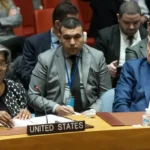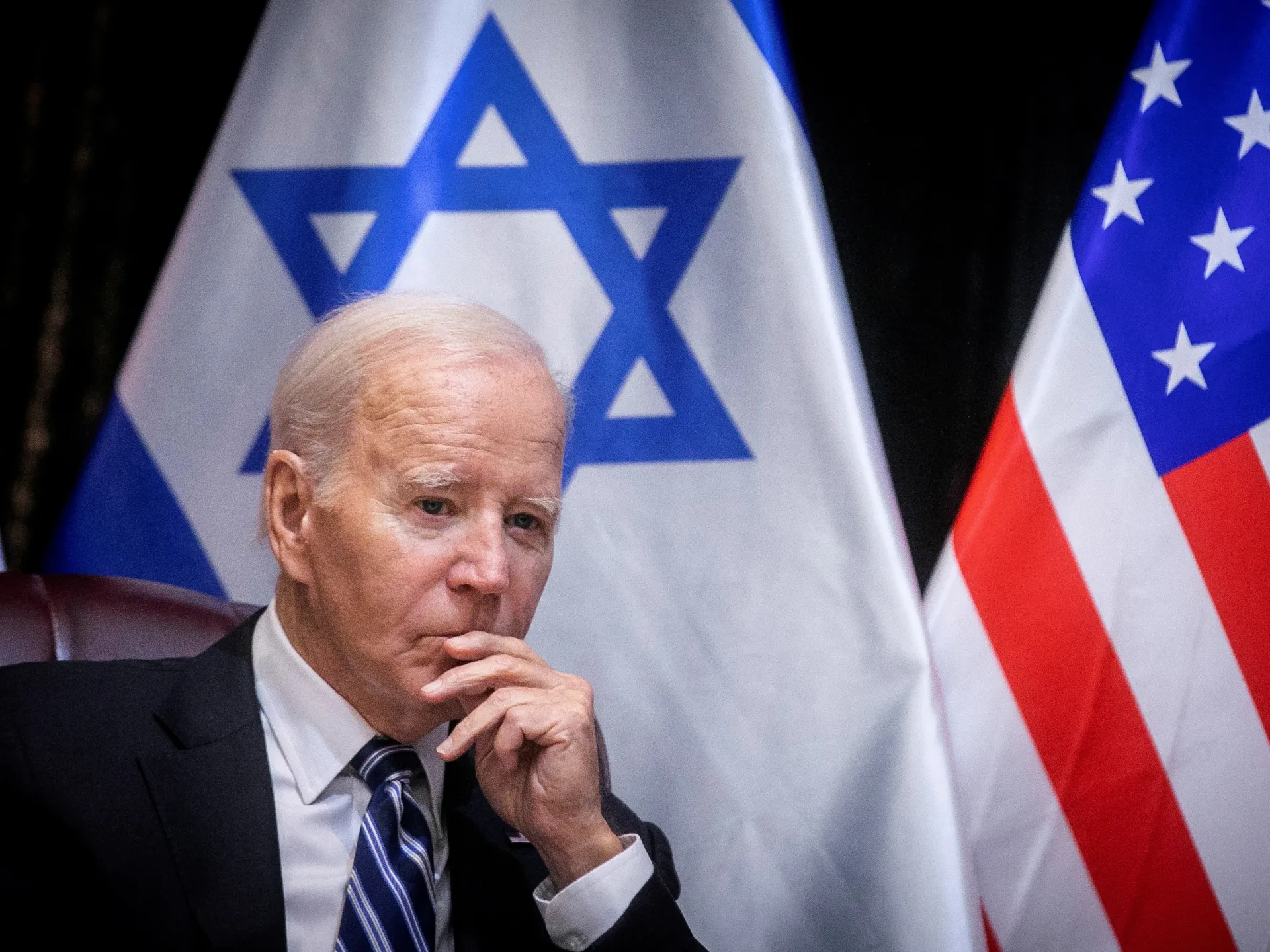Against the backdrop of the approaching 2024 presidential election in the United States, increasing anger with America’s continued stamp of approval over Israel’s assault on Gaza has made many American Muslim and Arab voters reevaluate their political loyalties. This US commitment to back the Israeli attack has fueled a sense of betrayal for grassroots movements that initially called for an “abandon Biden” movement to now tentatively endorse the Democratic Party.
Bipartisanship support for Israel’s military actions in Gaza only deepened the fracture of the American Muslim community over the past year. Groups such as “Muslims for Harris” and “Muslim Women for Harris,” aimed at mobilizing Muslim voters, have instead backfired to create disappointment and accusations of “elite capture.” Leaders of these movements, initially primed as allies of grassroots activism for Palestinian rights, were criticized for endorsing Vice President Kamala Harris without winning any concrete policy changes toward Gaza. This has, in turn, paved the way for a sense of frustration among disenchanted Arab and Muslim Americans, who now believe that voting alternatives exist beyond the Democratic party, given this sustained trend of marginalizing pro-Palestinian voices.
This was reflected in the expressions of frustration evident during this year’s Democratic National Convention when pro-Palestine demonstrators were booed by party delegates. Despite the lack of enthusiasm for the event, many leading Muslim organizations and political leaders chose to endorse Harris’s campaign without any preconditions related to policy commitments on Palestine. Their transformation from holding the Biden administration accountable to unconditionally backing Democratic incumbents has been described by critics as a “betrayal” of the Palestinian cause.
According to political analyst Olúfẹ́mi O. Táíwò, “elite capture” refers to the fact that the leaders in privilege always appropriate political agency in a manner that ensures the advancement of their interest at the expense of others. Consequently, Muslim elites in American politics have fallen into this criticism trap. They obtained media attention and political clout, but proximity to power has seen some criticize it for watering down their commitment to the cause of Palestinians. Their political alignment with Harris and the Biden administration has framed them as surrendering genuine activism for shadow box moves like hosting Eid al-Adha celebrations but disregarding calls for a Gaza ceasefire.
Not even stalwarts like James Zogby, founder of the Arab American Institute, are immune to expressions of frustration. Zogby deplored the stance taken by the Democrats on Gaza but expressed even more disgruntlement at the risk of policies from this administration turning away its base from the election. Yet, as Muslims go to the polls on Election Day, leaders within the Democratic fold are encouraging constituencies to vote for Harris to ensure not another term of Trump, leaving rhetoric on Gaza atrocities behind.
Harris herself has, to date, shown little deviation from Biden’s hardline stance on Israel; she has reiterated time and again “Israel’s right to self-defense.” Some defenders have attempted to cull an exception to her by portraying Harris as a champion of other communities of color. To many, however, this is mere diversionary rhetoric that gets past the point: the administration’s position on Palestinian rights.
While the public opinion in the Arab and Muslim American community remains divided, some voters turned to third-party candidates after feeling disappointed in what they consider a cynical Democratic ticket. A recent video by the Uncommitted National Movement orientated more around “voting against Trump” rather than promoting the cause of Gaza. This shift of focus of attention has increased cynicism even further, with critics saying that the movement, in practice, was only good at engaging people in identity politics rather than meaningful policy change.
It is in this election that Muslim leaders have decided to throw their weight behind Harris without including demands for an immediate change in US policy toward Gaza among their conditions. As if confirming Táíwò’s “elite capture” theory, politicians, on the whole, tend to enable and support the very powers they claim to oppose, leaving their communities disappointed. Maybe this is the moment American Muslims and Palestinians turn in on their leaders to ask whether these leaders are representing their interests or those of the political establishment.
For more reporting like this, please follow Newsdecensored on your favorite social media sites and bookmark the website. Thank you for your interest and support.















